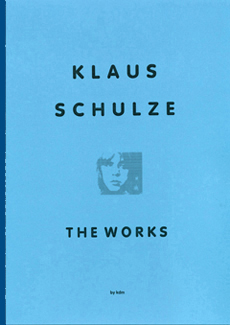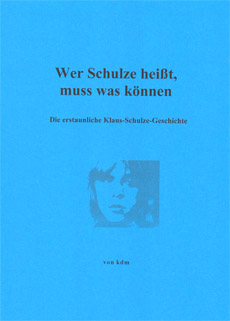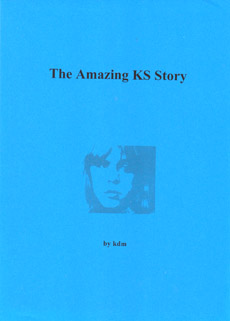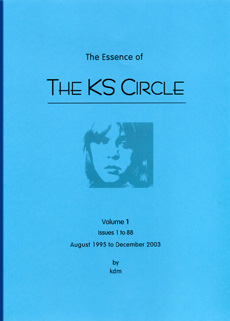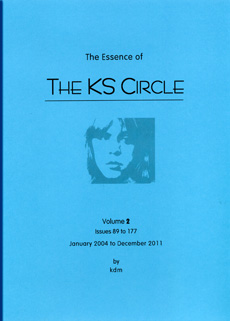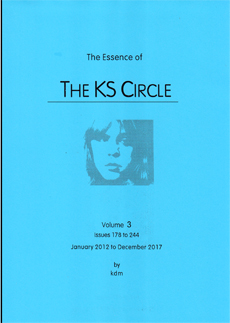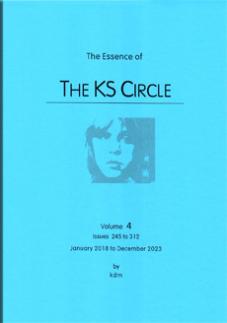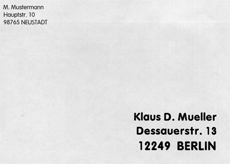Mittwoch, 13. Mai 2020
In 1999, a friend wanted to put together a CD-Box for an American label that should include the pioneers of Electronic Music, those who were influential and important for this genre. He asked for my opinion. I answered in length, and my choices were this:
.
From the names you give I would select with my well-known strictness :-)
Stockhausen's "Gesang der Jünglinge" (tell the people that this was it, maily. 96% of what else he did, is NOT electronic or even electric. Besides, this track didn't influence the young people but it only shocked some of the older, "serious" academic people who didn't and never will have any influence on the young music scene. When "Gesang der Jünglinge" came out, the youngsters were listening to Belafonte, Elvis (four No.1 singles and two No.1 albums in the USA in that one year), The Platters, Fats Domino, Chuck Berry, Lonnie Donegan's "Rock Island Line", Bill Haley, Gene Vincent, Johnny Ray, ...and to a certain Pat Boone).
Eno (an early track. If he ever would have made it without the immense & flashy "Roxy Music" fame?
Tangerine Dream's second or third album. Zeit or Alpha Centauri is a good choice.
Kraftwerk. An earlier track than "Robots".
Edgar Varèse.
Pierre Henry. I saw and heard him recently, also his new CD. He's stuck deeply in the fifties. Each of today's teenage Techo DJ makes better "electronic". But Henry's early collaboration with a pop group were of some influence, at least then. I think the group was "Spooky Tooth".
Walter Carlos of course. In my humble opinions it all started with him in the late sixties. Before, "electronic music" or "synthesizers" did not exist in peoples minds. Try to get his "Timesteps," said KS.
Morton Subotnick "Silver Apples on the Moon".
Ussachevsky. A fifties' title as example for all the academics who did similar experiments at the universities in Princetown, Paris, Utrecht, and Leningrad.
Tonto's Expanding Head Band.
Schulze (an early track, from "Irrlicht" for instance. He was indeed the only one who seriously und totally experimented with electronic sounds since the early seventies and outside & beyond the "serious" academic circles ... who did not stop, and who influenced all those synthesizer one-man-shows who came up in the late seventies, and still :-)
Beaver & Krause.
White Noise. "Electric Storm" (1969) was a widely known and influencial album.
Mort Garson (plenty of popular and strictly electronic albums).
...and that's all that comes spontaneously to my mind. Some of the names from your list are new to me (probably just known in the USA?), some I would place in the eighties, and some are better known for doing this or that, but they were of no "electronic" influence. The "Theremin" or the "Trautonium" come to my mind, they are still (for 60 years now) just novelties, funny inventions that had and still have no influence whatsoever. It's just that journalists mention these strange looking & sounding, unique instruments again and again. After all, it's a headline and a story ...like the sensation of a two-headed dog :-) It doesn't belong into a serious sampler.
... comment
"... Die Eingeweihten sagen, das Stück gehöre zu den faszinierendsten der Musik der ausgehenden 50er Jahre ("Klavierstück X" von Stockhausen). Dem Hörer allerdings, und durchaus auch dem mit der neuen Musik nicht unerfahrenen, erschließt sich das Werk kaum, und zwar selbst dann nicht, wenn er durch Analyse und Einführung eingewiesen wird. Dann nämlich stellt sich der fatale Eindruck ein, entgegen allen anders lautenden Beteuerungen seien die Überlegungen zur Komposition das eigentlich Wichtige, die erklingende Musik hingegen nur eine Art von Nebensächlichkeit – ein Eindruck, der so falsch nicht ist ... wenn das Mittel zum Zweck anstatt der Sache selbst ernst genommen wird."
(Empfehlenswertes Buch, schaut mal rein: Arnold Feil, "Metzler Musik Chronik", 1993, 39 Mark)
... link
Sunday 1 February 2009, on German radio “SWR 2":
I just have listened to a conversation with the modern composer & trombone player, simpatico Mike Svoboda. For some time during the eighties and nineties he had worked with Karl-Heinz Stockhausen and he spoke about it. My interest arose when Svoboda suddenly mentioned a remarkable handicap of Stockhausen:
“...er wusste nicht so genau, wie man das macht, das mit den neuen Instrumenten, Synthesizer und so, ja besonders Synthesizer. Das war 1986, ‘87.”
In English: “...he didn’t know exactly how to work with the new instruments, synthesizers and others, but mainly synthesizers. This was in 1986-‘87.”
...and for the next two years Svoboda showed him how to handle synthis.
The years above is no mistyping: the sudden appearance of those "new" instruments, those synthesizers, was indeed not until 1986 and ‘87 ...at least for dear Karl-Heinz.
... link
... comment


